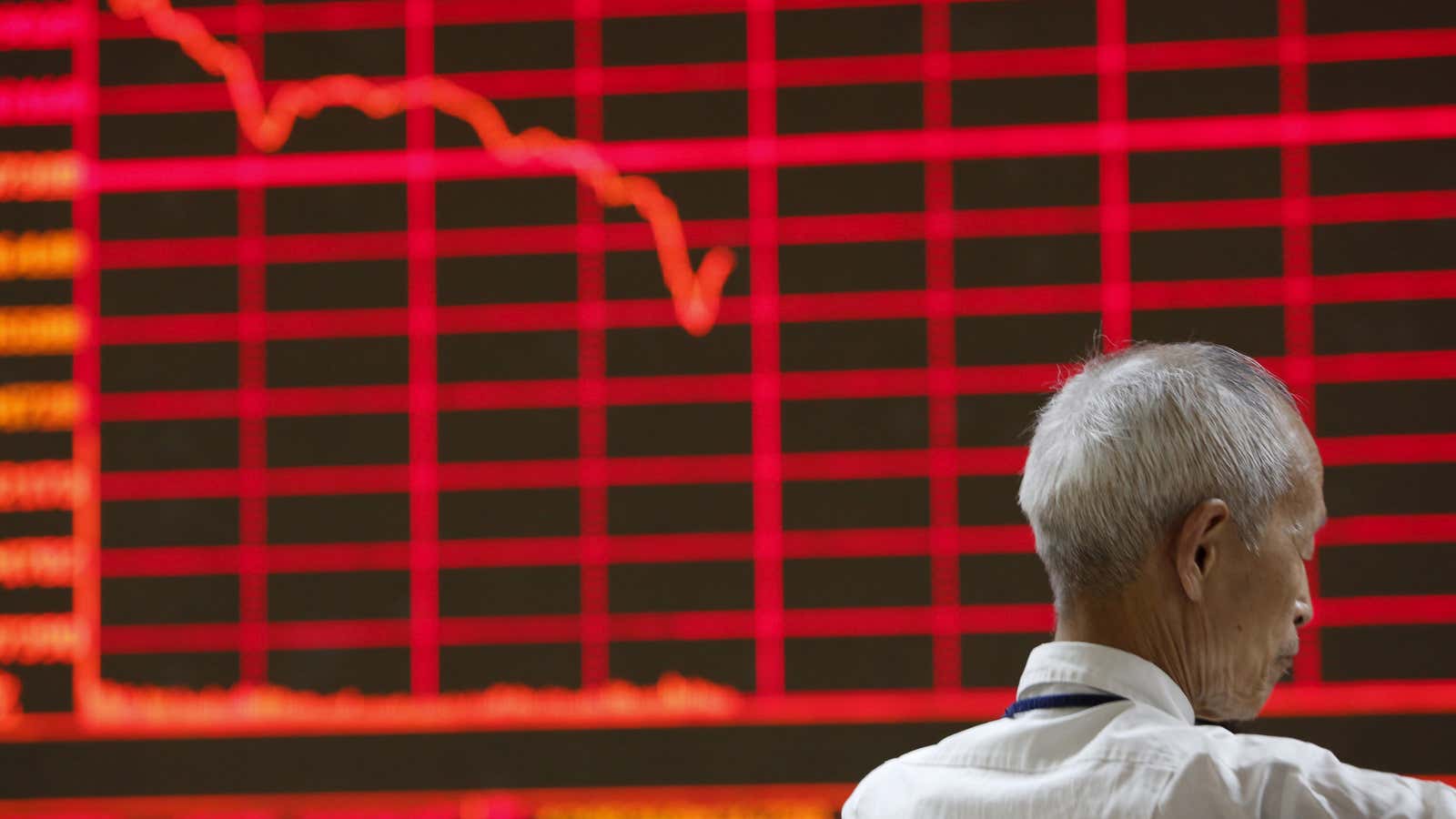The sale of cryptographic tokens, a market that has boomed this year, has been deemed an “illegal fundraising practice” by China’s central bank. In a notice published today (in Chinese), the regulator ordered all such offerings to be halted, for exchanges to stop trading in the tokens, and for funds already raised to be returned to investors.
The Chinese regulator’s stance is the toughest yet (paywall) on a funding mechanism that has raised $1.5 billion for issuers so far this year, according to trade publication CoinDesk. The hottest of these so-called “initial coin offerings” have raised hundreds of millions in minutes, as investors sell their bitcoin and ether to receive newly minted tokens that promise to fuel everything from decentralized storage platforms to prediction markets. The US securities regulator has been tolerant of ICOs by comparison, letting one firm off with a warning in July.
Because these tokens are generally built atop the ethereum protocol (tokens are essentially complicated ethereum contracts), the price of ether has shot up this year, surging more than 40 times higher between January and its peak in June. News of the Chinese crackdown sent ether tumbling: it has fallen around 16% at the time of writing. The news had less impact on bitcoin’s price, which is down by around 4% on the day.
Rumors of a central bank crackdown have swirled in cryptocurrency forums and chat groups for weeks. They reached a fever pitch on Friday, when a much anticipated cryptocurrency conference in Beijing was suddenly called off. “I got a notice at 11:55 pm on Friday evening saying that the conference was cancelled,” said one ticket holder, Spencer Yang. The conference was due to start the next morning. “There was a lot of confusion,” he said. The conference organizers say the event was cancelled because of limited space and public security concerns.
The chatter in cryptocurrency markets is now buzzing with conspiracy theories—even more so than usual. WeChat channels for ICOs, usually boisterous, grew quiet over the weekend as news of the Beijing conference cancellation trickled out. People are pointing out that several other high-profile conferences in the Chinese capital have either been cancelled or delayed.
The speculation was enough to spook some token issuers, even before the regulator issued its notice. One team, Scry.info, told would-be investors on its WeChat group yesterday that it was suspending its planned token sale, which would have raised about $50 million worth of ether.
Yang, who traveled from Singapore to Beijing to attend the cancelled conference, was there partly to suss out the market for his own firm’s imminent ICO. Yang heads the Asian business of Unikrn, a betting platform for professional video gaming. It has raised $10 million in conventional venture funding from backers like Mark Cuban, but it’s planning a $100 million raise from selling tokens in three weeks.
Yang wanted to rustle up interest from Chinese token investors, a plan that has been torpedoed by the central bank’s announcement. “If the market mood was different, we would expect a huge allocation for Chinese investors. But given the current situation we will prioritize other countries,” he said. Yang remains confident that demand is strong elsewhere in Asia, particularly Korea and Japan.
The crypto industry’s official line is that more regulation is good. Jack Liao, who runs a bitcoin mining operation called Lightning Asic, is planning to launch a fund that invests in tokens. The new regulations are “good for the whole community,” because they will weed out scams from legitimate offerings, he said. He will adapt his fund’s strategy accordingly.
As for the falling ether and bitcoin price? Take it as a fantastic buying opportunity, says one bitcoin believer. “Cheaper bitcoins are always good,” according to Neil Woodfine, the organizer of Beijing’s bitcoin meetup group. “Less noise, more signal.”
